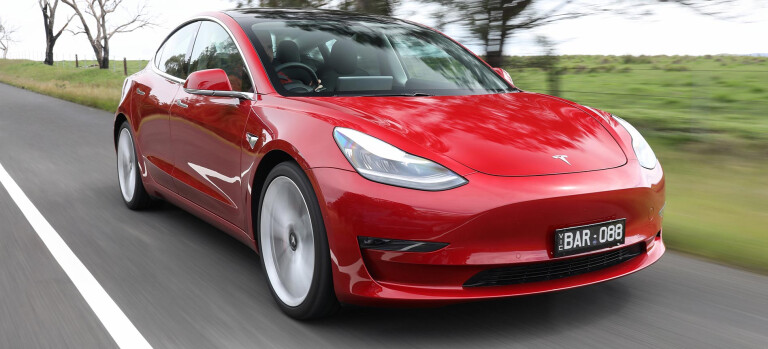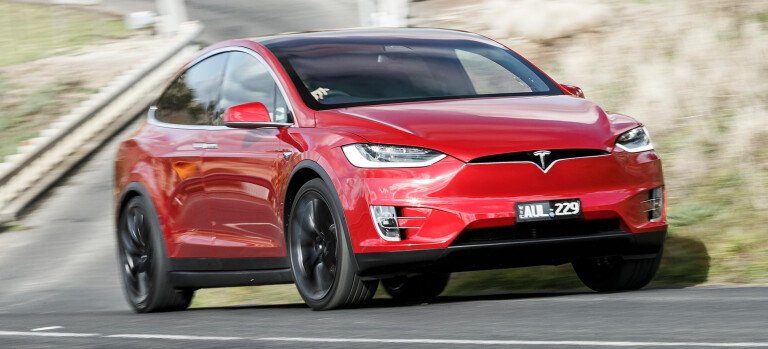.jpg )
- Tesla comes out swinging in strongly-worded statement
- 127 US consumer complaints have been combined into one petition
- US highway safety agency investigating the matter
Tesla has issued a rare and strongly-worded statement refuting the petition currently in front of America’s largest automotive safety body, the National Highway Traffic Safety Administration (NHTSA), which has the potential to trigger a recall of upwards of 500,000 Teslas for “sudden unintended acceleration” issues.
"There is no “unintended acceleration” in Tesla vehicles," reads the statement.
"This petition is completely false and was brought by a Tesla short-seller. We investigate every single incident where the driver alleges to us that their vehicle accelerated contrary to their input, and in every case where we had the vehicle's data, we confirmed that the car operated as designed.
"In other words, the car accelerates if, and only if, the driver told it to do so, and it slows or stops when the driver applies the brake."
Unintended-acceleration suits against car companies in the US are relatively common, with Audi almost driven out of the country in the 1980s after claims of 700 incidents and six deaths.
More recently, Toyota was forced to recall more than 10 million vehicles from 2009 to 2011 and pay fines and compensation in excess of US$4 billion ($6.5billion), after claims of unintended acceleration by consumers were proven by the NHTSA.
A combination of poor-fitting carpet mats and antiquated engine computer software were blamed.
Tesla, however, dismisses the notion that its cars are capable of suffering from unintended acceleration.
"While accidents caused by a mistaken press of the accelerator pedal have been alleged for nearly every make/model of vehicle on the road, the accelerator pedals in Model S, X and 3 vehicles have two independent position sensors, and if there is any error, the system defaults to cut off motor torque," reads the statement.
"Likewise, applying the brake pedal simultaneously with the accelerator pedal will override the accelerator pedal input and cut off motor torque, and regardless of the torque, sustained braking will stop the car."
The company also claims that its Autopilot system is fitted with sensors to detect "potential pedal misapplications", and that it is able to review recorded data for any alleged incident.
The petition against Tesla was filed in December 2019 by Brian Sparks, who claims to be an independent investor.
It quotes numerous owner reports of the alleged incidents and makes reference to 127 consumer complaints to the NHTSA that cover 123 unique vehicles.
The list of cars includes the 2012-2019 Tesla Model S sedan, the 2016-2019 Tesla Model X SUV, and 2018-2019 Tesla Model 3.
It’s alleged that 110 crashes and 52 injuries have resulted from the unintended acceleration events. No deaths have as yet been alleged.
Tesla points to its record with the safety agency, pointing out that the majority of claims raised in the petition have already been discussed.
"In every case we reviewed with them, the data proved the vehicle functioned properly," reads the statement.

"As is the agency's standard practice in such matters, NHTSA will carefully review the petition and relevant data," the NHTSA said in a statement.
The petition quotes numerous owner reports of the alleged incidents.
“While I was parking sudden acceleration occurred vehicle jumped the curb and the vehicle smashed the building went thru[sic] the wall,” read one complaint from the owner of a 2019 Model X in California.
“There were twice prior incidents with no accident but freaking out within last 4 weeks. The vehicle was in motion in city street all three instances. All three incidents I was turning the corner or parking with less than 5 miles per hour [8km/h].”

The agency will now conduct its own technical analysis of the incidents reported in the petition. It can then either deny the petition in its entirety or open a defect investigation, which is the trigger for a potential recall.
COMMENTS